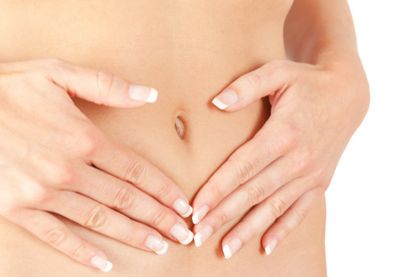
(Vienna, 18 June 2021) One in six women and one in twelve men in Austria suffers from some form of IBS – therefore around one million people in all. Using currently available techniques, it is only possible to diagnose IBS by a process of elimination. Most people suffering from irritable bowel syndrome only go to their doctor when they have severe symptoms such as constipation, diarrhoea, abdominal pain, or a change in bowel motion. Researchers from the Department of Medicine III of the Medical University of Vienna and the University of Vienna have now shown that, in most cases, IBS is associated with bacterial biofilms in the gut that are visible under endoscopic examination.
"For the first time, we have managed to identify a cause of irritable bowel syndrome and, at the same time, show how this disease can be more accurately diagnosed, classified and assessed," says Christoph Gasche, Head of the Laboratory for Molecular Gastroenterology at Medical University of Vienna and leader of the study funded by the Austrian Science Fund (FWF) and Vienna Science and Technology Fund (WWTF), which has now been published in the leading journal Gastroenterology and came into being in collaboration with MedUni Vienna microbiologist Athanasios Makristathis, David Berry and Markus Muttenthaler (University of Vienna), as well as Timo Rath (Friedrich Alexander University, Erlangen).
According to the study, people who have taken a lot of medication over the course of their lives, so that the balance of their gut flora has been disrupted, are more likely to be affected by bacterial biofilms. Another interesting subgroup is patients who have previously had organ transplants. Gasche explains: "Certain drugs, such as proton pump inhibitors, can upset the balance of the bacterial ecosystem. The bacteria then go into survival mode. To give themselves a better chance of surviving this stress, they band together for safety and form biofilms, a sort of protective space that makes them resistant to antibiotics and other environmental toxins."
In total, more than 1,000 colonoscopies were performed in a multi-centre study, and it was found that two thirds of those who had IBS symptoms also had biofilms in their small or large intestine. However, these mucosal biofilms are also found in one third of patients with ulcerative colitis.
This bacterial matrix, which can be reticular or even planar, adheres like a thin layer on the mucosal lining of the gut – not unlike dental plaque in caries – thereby impairing its functions and, hence, that of the gut. "Up until now, it has always been assumed in investigations that this sticky film is made up of residues of impurities in the gut, which were difficult to eliminate," says Gasche. "However, we have now been able to show that this is where the bacterial matrix adheres." A revolutionary discovery for the lead authors of the study, Maximilian Baumgartner und Michaela Lang, on a par "with the discovery of the rod-shaped bacterium Helicobacter pylori, which permanently changes the gastric environment."
Irrigation might help, biofilms as a new characteristic of IBS
In many cases it is possible to wash away these biofilms in the large intestine using an endoscopic "spray gun". Future studies will show whether this alleviates the IBS symptoms. Also, this technique cannot (as yet) be used to remove biofilms from the small intestine, where they also frequently occur. In a new project funded by Vienna Science and Technology Fund (WWTF), the MedUni Vienna experts are therefore already investigating how the new findings about these biofilms can be used in future to generally remove them or even to prevent them from forming in the first place. But one conclusion can already be drawn from the study results: "Biofilms reflect an imbalance in the gut flora, could well explain the symptoms of IBS patients and, hence, give rise to new therapeutic approaches," say the researchers.
Service: Gastroenterology
"Mucosal biofilms are an endoscopic feature of irritable bowel syndrome and ulcerative colitis." Maximilian Baumgartner, Michaela Lang, Hunter Holley, Daniel Crepaz, Bela Hausmann, Petra Pjevac, Doris Moser, Felix Haller, Fabian Hof, Andrea Beer, Elisabeth Orgler, Adrian Frick, Vineeta Khare, Rayko Evstatiev, Susanne Strohmaier, Christian Primas, Werner Dolak, Thomas Köcher, Klavis Kristap, Timo Rath, Markus F. Neurath, David Berry, Athanasios Makristathis, Markus Muttenthaler, Christoph Gasche.
DOI: https://doi.org/10.1053/j.gastro.2021.06.024